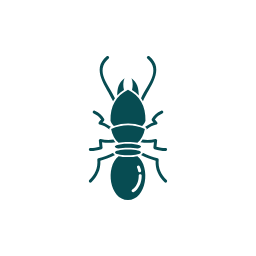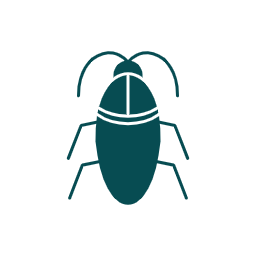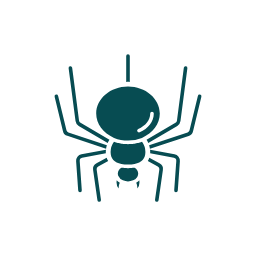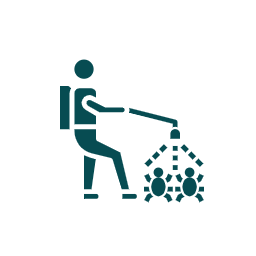Ants are small, sneaky, and seriously stubborn. One moment your kitchen is spotless, and the next—bam!—you’ve got ants in your home, crawling in from who-knows-where. This article is your go-to guide for how to get rid of ants, especially when they’ve built a nest right inside your house. Whether you’re battling black ants in Australia, fire ants near the lawn, or just looking for ways to get rid of them without turning your home into a chemistry lab, this post breaks it all down.
You’ll learn how to find the nest, use targeted treatments like ant bait and insect spray, and even tap into natural ways to deter ants from returning. And because this isn’t just about one or two scouts, it’s about full-blown ant colonies, you’ll get practical tips to stop ants from invading your house once and for all.
How to Find and Destroy an Ant Nest Inside the Home
If you’ve started seeing ants inside your home, chances are they’ve already found a way to build a nest nearby. Finding the nest is your first real line of defence against a full infestation. But ants are small, clever insects—and their nests can be hidden in the most unexpected places.
To locate an ant nest, follow the ant trail. Worker ants travel back and forth between their food source (say, a dropped crumb or two) and the nest. You’ll often see these trails along window frames, cracks in the wall, or skirting boards. Once you find where the ants are coming from, check inside cupboards, behind appliances, or even in wall cavities—ants tend to prefer warm, hidden areas with access to moisture.
Once you find the nest, your goal is to kill ants at the source. Simply spraying insecticide on the trail might get rid of the ones you see, but unless you destroy the nest, they’ll just keep coming back. That’s why targeting the nest directly is one of the most effective ways to get rid of ants in your house.
Use Ant Bait to Kill Ants at the Source
When it comes to effective ant control, bait is a game changer. Spray treatments only kill visible ants, while ant bait works by luring worker ants to collect poisoned food and carry it back to the nest, wiping out the entire colony—including the queen.
Place bait stations near areas where you see ants frequently—near sinks, along window frames, under the fridge, or around food storage. Don’t clean up the ant trail just yet; the ants are attracted to the scent, and disrupting it may prevent them from finding the bait.
Be patient. It may take a few days to kill ants using this method, but it’s highly effective for long-term ant control. You may even notice a temporary increase in the number of ants—a good sign that the bait is working and being taken back to the nest.
Natural Ways to Get Rid of Ants Without Harsh Chemicals
Looking for natural ways to deal with an ant infestation? Great news: you don’t need to resort to harsh chemicals to get rid of ants. You can deter ants naturally using items you probably already have at home.
Start with white vinegar. Mix equal parts of vinegar and water in a spray bottle and apply it along ant trails, entry points, and anywhere you see ants. Vinegar helps to remove the scent trails left behind by worker ants so they can’t find their way back to food sources.
Another effective natural ant remedy is borax mixed with sugar or honey. Like commercial bait, this mixture lures ants with sweetness, and the borax poisons them slowly. It’s a powerful way to kill ants, especially if you want to avoid synthetic pesticides. Just ensure it’s safe to use around pets and children.
You can also use essential oils like peppermint, tea tree, or citrous. These oils don’t just deter ants—they actively interfere with the ants’ ability to communicate, making them lose track of the ant trail. Place a few drops on cotton balls and leave them near areas where ants are active.
How to Stop Ants from Entering Your Home Again
So you’ve wiped out the ant nest—now what? The last thing you want is for another ant colony to set up shop. That’s why prevention is just as important as treatment.
Seal all entry points—tiny gaps in your windows, door frames, plumbing, and electrical lines. Ants are small, and it doesn’t take much for them to get inside. Use caulk or weather stripping where needed, especially around your window frames and skirting boards.
Next, focus on eliminating what attracts ants in the first place. That means no crumbs on the floor, no sticky jars in the pantry, and no leaky pipes. Remember: ants prefer sugar, moisture, and protein. Keep surfaces clean, store food in airtight containers, and regularly empty your bins.
To really prevent ants, keep up a routine of using ant repellent products or natural deterrents like vinegar and essential oil. By staying vigilant, you’ll keep ants from entering the home—or worse, nesting again.
Dealing with Ants Around the Lawn and Garden
The lawn and garden are prime spots for ants in Australia, especially in warmer months. If you see ants trailing through your grass, mulch, or garden beds, you might have an ant nest forming close to your house.
Outdoor ant nests can lead to structural damage, especially if ants make their way under pavers or into wooden fences. Worse, they may eventually migrate indoors in search of food. That’s why tackling outdoor ant colonies is crucial for full-home ant control.
Start by applying outdoor spray treatments to the perimeter of your home and garden. Use products labelled for ant infestation and check that they’re pet-friendly if needed. You can also try borax-based baits placed near visible ant trails or directly onto the nest near the lawn.
Keep your lawn trimmed, avoid overwatering, and remove any debris that could provide shelter for ants. Keeping things tidy around your home makes it less inviting for ants and other pests.
When Fire Ants or Black Ants Become a Serious Pest Problem
Some ant species are more than just a nuisance—they’re dangerous. Fire ants, for instance, deliver painful ant bites and are known for aggressive behaviour. Black ants, while less threatening, can still cause significant damage if left unchecked in your walls or inside the home.
These tougher cases require stronger treatment for ants. If you suspect fire ants or another invasive ant problem, call a professional ant exterminator. For example, insect granules can be spread directly on the nest or lawn, while indoor spray should be applied carefully along ant trails.
However, when dealing with dangerous or persistent infestation, DIY methods might not be enough. That’s when it’s time to call the professionals.
Why Professional Ant Control is the Best Long-Term Solution
Even if you kill ants and destroy a nest, ants may return—especially if your home offers easy food access or you’ve missed a hidden colony. That’s where our professional ant control service comes in.
At Pest2Kill, we don’t just treat the ants you see. We investigate the full ant infestation, identify the types of ants causing trouble, and use tailored strategies to wipe out ant colonies from the inside out. Whether you’re facing ants in the house, your lawn, or crawling around your cupboards, we bring decades of expertise and proven systems that work.
From safe bait systems to targeted spray treatments, our licenced technicians take the guesswork out of ant control. We’ll even help you prevent ants from returning by sealing entry points and giving advice on how to make your home less appealing to pests.
Final Thoughts: Stop Ants from Invading Your House Once and For All
Here’s the hard truth: when it comes to ants invading your house, treating the nest is non-negotiable. Whether you’re dealing with black ants, fire ants, or persistent ants inside your kitchen, the solution is always the same—find the nest, choose the right bait or spray, and cut off the colony at the source.
Remember these key points:
- Always follow the ant trail to find the nest.
- Use bait to let worker ants carry poison back to the nest.
- Keep your home clean and sealed to deter ants.
- Try natural ways like borax, white vinegar, and essential oils if you prefer chemical-free methods.
- Call Pest2Kill if the infestation grows or if you’re dealing with difficult ant species.
Don’t let ants make themselves at home. If you’re seeing more than just a few scouts—or worse, have no idea where the nest is hiding—reach out to the expert team at Pest2Kill. We’ll handle the dirty work so you can go back to living pest-free.
FAQS
What common things around the home attract ants?
Ants are often attracted to sweet, greasy, or protein-rich foods—especially if they’re left uncovered. Even something as small as a crumb can signal a food source to house ants, who use scent trails to alert others. Leaky taps, pet food, and rubbish bins also attract adult ants and winged ants looking to expand their colony. To help discourage ants, always clean up spills quickly and store food in sealed containers around the home.
Can insect spray alone stop an ant invasion?
While insect sprays can offer temporary relief by killing and repelling ants, they rarely address the root problem: the nest. Surface sprays may stop visible trails, but ants don’t usually die immediately and may simply relocate. To truly control ants, you need to locate and treat the colony, not just the ants inside. Also, sprays can miss hidden species of ants, especially those like the Argentine ant that can split off into new colonies.
How can I prevent ants from entering my home?
To prevent ants, seal up entry points like cracks in walls, gaps in window frames, and areas near plumbing. Ants have two main goals: food and shelter, so eliminate both. Fix leaky pipes, clean regularly, and remove potential nesting spots. Also, using natural deterrents like vinegar or essential oils can help discourage ants. Remember, ants can’t infest what they can’t access—so the best defence is a clean, sealed home.
How do I identify an ant infestation early?
Signs of an infestation include visible ant trails, piles of soil or debris, and increased activity near food or water sources. You may find ants in kitchen cupboards, behind appliances, or near an ant trail leading outside. Pay attention to winged ants, which indicate a mature colony ready to spread. Noticing a sudden number of ants indoors, especially of the same species of ants, is another red flag.
What is the best treatment for ants that keep returning?
The most effective treatment for ants involves a combination of baiting, sealing, and long-term exclusion. Use ant bait to target the colony—worker ants carry poison back to the nest. Simultaneously, clean thoroughly to eliminate the scent trails ants use to navigate. Some ants also require specific methods depending on the species of ants involved, so identification helps guide the best plan. Consistency is key to controlling ants long-term.
Why do ants tend to stay inside even after cleaning?
Even after cleaning, ants tend to return if the colony hasn’t been removed. Once ants have two things—food and shelter—they’re persistent. Cleaning may remove visible trails but not the pheromones left behind. Unless you eliminate the scent and address the way into your home, ants entering the home will remain a problem. Use baiting systems in tandem with proper sealing and sanitation to break the cycle.














